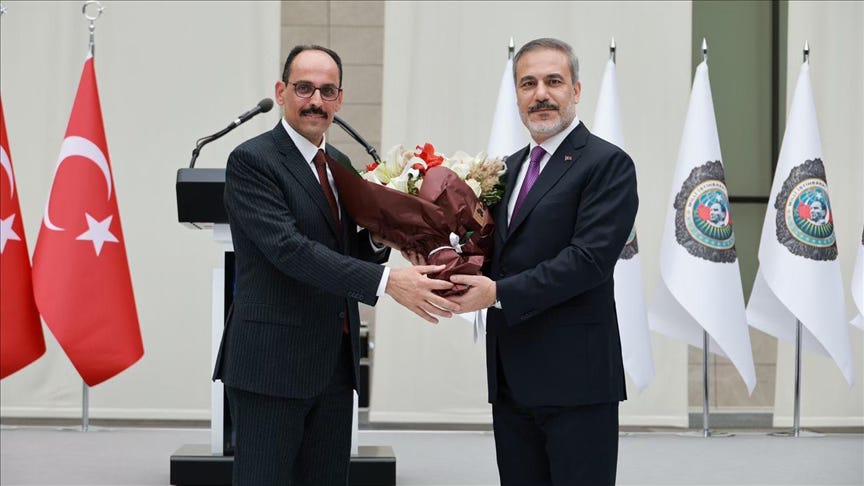All Eyes on These Two Turkish Men: Hakan Fidan v. Ibrahim Kalın
Too many tributes, too many comparisons, too many convenient stories about Turkey's FM Fidan and spy chief Kalın. Therefore, I believe, several dynamics converge here.

I do not know how many times each of them has been described as the ultimate keeper of Erdoğan’s secrets, or, as Erdoğan once put it, “the secrets of Turkey.”
Turkey’s Foreign Minister Hakan Fidan and intelligence chief İbrahim Kalın have emerged as the two most scrutinised figures in the Erdoğan government.
Both operate at the intersection of diplomacy and intelligence, shaping policy across the Middle East while drawing close attention from foreign capitals, particularly from Israel, where assessments of their roles now double as readings of Turkey’s future power structure.
Both have become the subjects of competing narratives that reveal as much about the calculations of foreign governments, especially Israel’s, as they do about Turkey’s internal rivalries
Reports have long circulate…
Keep reading with a 7-day free trial
Subscribe to Angle, Anchor, and Voice to keep reading this post and get 7 days of free access to the full post archives.

